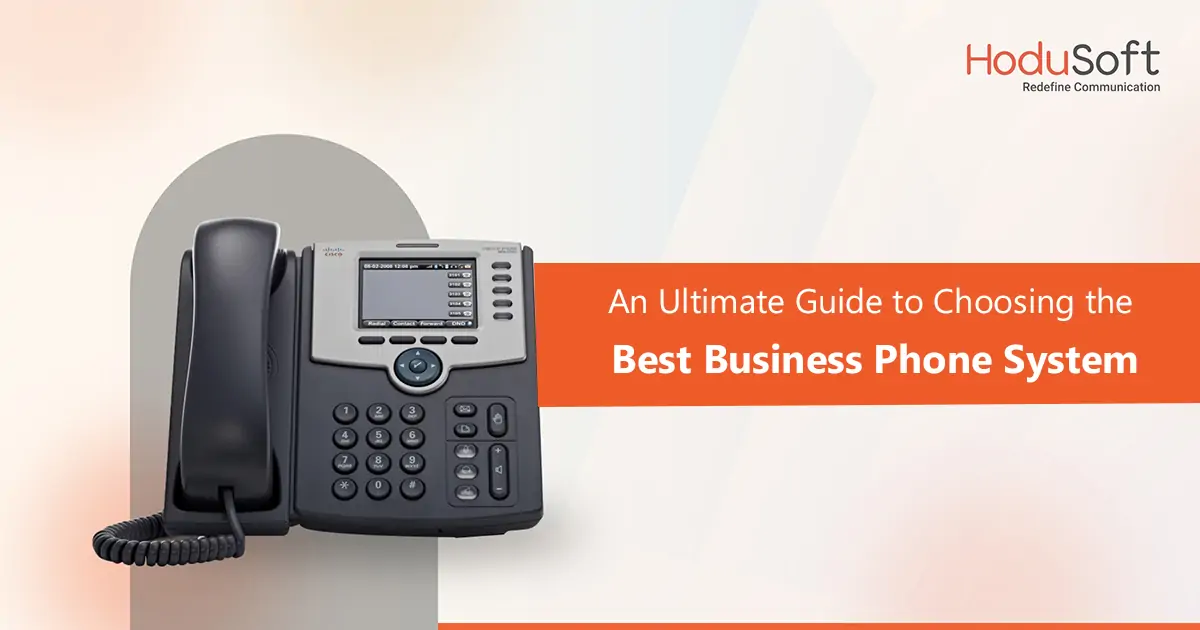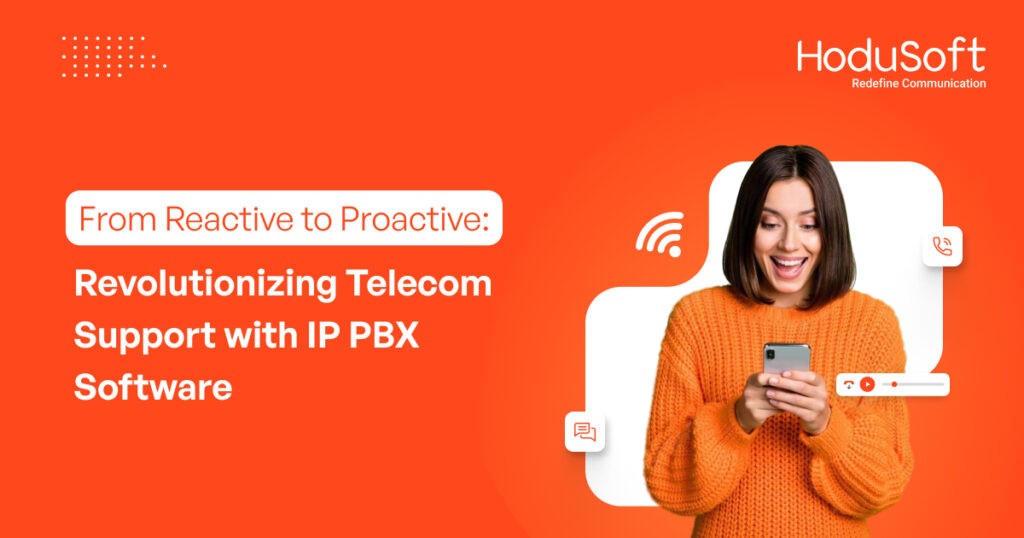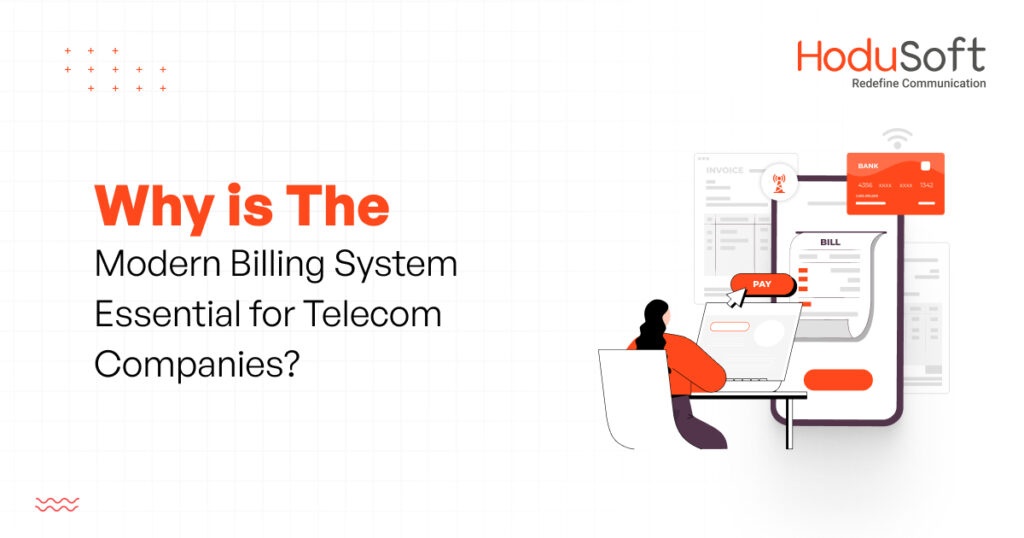An Ultimate Guide to Choosing the Best Business Phone System
Having the right business phone system is crucial for any business. Whether you have one employee working from home or a team of 20 employees in an office, having the right phone system can make a big difference in how smoothly your company operates. A business phone system will not only help your employees communicate more effectively and efficiently, but it can also save you time and money by reducing unnecessary costs, streamlining operations, and increasing productivity.
Consequently, finding the right business phone system for your business will go a long way towards ensuring that it thrives for years to come. With that in mind, this article will aim to give you some useful tips on choosing the right system for your business.
What is a Business Phone System?
An office phone system is typically used in business environments, which can include features such as call forwarding, auto-attendant, voicemail, and conference calling. Business phone systems are often private branch exchanges (PBX), but may also be key systems or central systems. It is a tool that allows businesses to manage their phone calls and communications. It can be used to route calls to the right people, record calls, and store voicemails. A business phone system is a valuable tool for a business of any size.
The Benefits of a Business Phone System
An office phone system can give you the reliability and features you need to run your organization smoothly. Here are some of the benefits of a business phone system:
- Improves customer service by providing features such as call forwarding and call waiting.
- Boosts employee productivity by providing features such as conference calling and voicemail.
- Save money on business communication costs by providing features such as VoIP (Voice over IP).
- Presents a professional image to your clients and customers
- Helps expand your business.
Types of Business Phone Systems
When it comes to choosing a business phone system, there are a few different types to choose from. Here is a brief overview of the different types of systems to help you choose the best one for your business:
VoIP
VoIP, or Voice over Internet Protocol, allows businesses to make and receive phone calls over the internet, rather than through a traditional phone line. VoIP phone systems for small business can save businesses a significant amount of money on their monthly phone bills. In addition, VoIP phone system often comes with a variety of features that can be very beneficial for businesses, such as call forwarding, call recording, and caller ID.
PBX
A PBX phone system is a type of business telephone system typically used by medium to large organizations. A PBX system allows internal callers to communicate with each other without incurring long-distance charges. In addition, a PBX system provides features such as caller ID, call waiting, and voicemail that can be customized to meet the needs of your business.
Cloud-Based
A Cloud-based business phone system is a VoIP (Voice over Internet Protocol) system that uses the internet to route calls. These systems are hosted by service providers, which means that businesses don’t have to worry about maintaining or upgrading the system. They are scalable, so businesses can add or remove lines as needed.
On-Premise
On-premise office phone systems are telephone systems that are owned, operated, and managed by the business itself. This type of system is usually installed and maintained on the business premises and is often custom-designed to the specific needs of the business. On-premise systems can be either private branch exchange (PBX) systems or key systems.
Factors to keep in mind while Choosing a Business Phone System
A business phone system is a vital tool for any company. It can help improve communication, collaboration, and customer service. There are a few key considerations to keep in mind when choosing a business phone system. Carefully weigh your options when choosing to ensure that you get the features and functions that you need.
Your Business Needs
When you’re ready to upgrade your business telephone systems, the first step is to consider your business needs. By taking the time to assess your specific requirements, you can narrow down your choices and find the perfect fit for your company.
Cost
When it comes to choosing business telephone systems, one of the most important factors to consider is cost. There are a variety of systems in the market, and the costs can vary widely. How do you know which system is right for your business, and how do you compare the costs? The first step is to determine what features and functionality you need in a phone system. Do you need a simple system with just a few lines, or do you need a more complex system with a variety of features? Once you know what you need, you can begin to compare costs.
Features
Choosing a business phone system may seem like a daunting task, but it doesn’t have to be! By considering a few key features, you can narrow down your options and find the perfect system for your business. First, consider what features you need. Do you need a phone system that can handle a high volume of inbound calls, outbound calls or both? Check for the collaboration needs of your team. Does your business need international call facilities? Once you know what features you need, you can start comparing pricing. Some systems are more expensive than others, but remember that you get what you pay for. If you need a high-end system with all the bells and whistles, you’ll have to pay more than you would for a low-end phone system.
Scalability
Scalability is an important determining factor in making the right choice. A business phone system should be able to grow with your business. It should have the ability to add new features and lines as your business expands. Look for a system that is easily expandable. The last thing you want is to outgrow your phone system in a short period of time. Make sure the system can support the number of users you anticipate having in the future. If you plan on expanding your team, you will need a system that can accommodate more users.
User-friendly interface and ease of setup
Having a complex system with a confusing interface can be counterproductive. Look for a system with a user-friendly interface that is easy to navigate.
You should be able to set up the phone system quickly and easily. Look for a system that comes with clear instructions to set it up quickly without any hassles.
The Bottom Line
While selecting the business phone system, you must consider a number of factors, including the size of your company, your budget, and your call volume. VoIP systems are generally more affordable and offer more features than traditional phone systems, but they may not be able to handle a high volume of calls. If you’re not sure which type of business phone system is right for you, consult with the HoduSoft team to find the best solution for your company.



